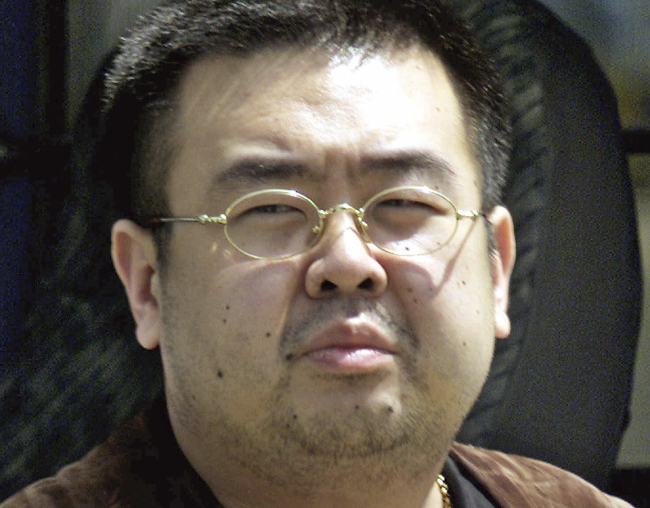Assassination of Kim Jong-nam sheds light on NK regime' vulnerability: ex-spy
By KH디지털2Published : Feb. 23, 2017 - 15:30
The recent assassination of his half-brother shows how vulnerable North Korean leader Kim Jong-un is to potential challenges to his power, a former North Korean spy here said Thursday.
"The fact that Kim Jong-un assassinated his own half brother in such a brutal manner conversely shows the regime is that vulnerable," Kim Dong-sik, formerly a North Korean agent, said in a report on the recent murder.
He is currently a researcher at South Korea's state-run Institute for National Security Strategy, having been captured in the South in 1995 and undergone thorough questioning for years.
The North Korean leader committed the inhumane and brutal assassination to safeguard his power, the researcher said, but it would "clearly have a boomerang effect of bringing down the Kim Jong-un regime instead."

Kim Jong-nam, the eldest son of late leader Kim Jong-il, was assassinated with what a Malaysian police investigation said was poison by North Korean agents on Monday last week while he was waiting to board a flight at Kuala Lumpur International Airport.
In a report carried by the state-run Korean Central News Agency, North Korea denied its involvement in the murder and accused Seoul of cooking up the story. Pyongyang even refused to confirm if the man who died was indeed the leader's estranged sibling, only saying that his name was Kim Chol.
Despite the North's denial, the assassination apparently took place at the order of Kim Jong-un, the researcher said.
"Kim Jong-un is the only person in North Korea who has reason to order the assassination of Kim Jong-nam," he said, indicating that no one except the leader could have planned to murder the leader's blood-related brother for fear of serious punishment.
"Therefore the final decision maker would have been Kim Jong-un given that the assassination would have needed an order, or at least approval, from him."
For the regime, the assassination was a pressing assignment that must be accomplished even at the cost of international criticism and sanctions that could follow the murder, the researcher noted.
"Kim Jong-nam and his son Han-sol's singling out of Kim Jong-un as a dictator and their objection to the three-generation power inheritance may have been the biggest cause of the assassination," he said, speculating on the motive of the murder.
"Another critical reason must have been that Kim Jong-nam's presence poses an obstacle to the idolization of Kim Jong-un and solidifying his power in the country," the former spy added. (Yonhap)


![[Exclusive] Korean military set to ban iPhones over 'security' concerns](http://res.heraldm.com/phpwas/restmb_idxmake.php?idx=644&simg=/content/image/2024/04/23/20240423050599_0.jpg&u=20240423183955)

![[Graphic News] 77% of young Koreans still financially dependent](http://res.heraldm.com/phpwas/restmb_idxmake.php?idx=644&simg=/content/image/2024/04/22/20240422050762_0.gif&u=)



![[Pressure points] Leggings in public: Fashion statement or social faux pas?](http://res.heraldm.com/phpwas/restmb_idxmake.php?idx=644&simg=/content/image/2024/04/23/20240423050669_0.jpg&u=)









